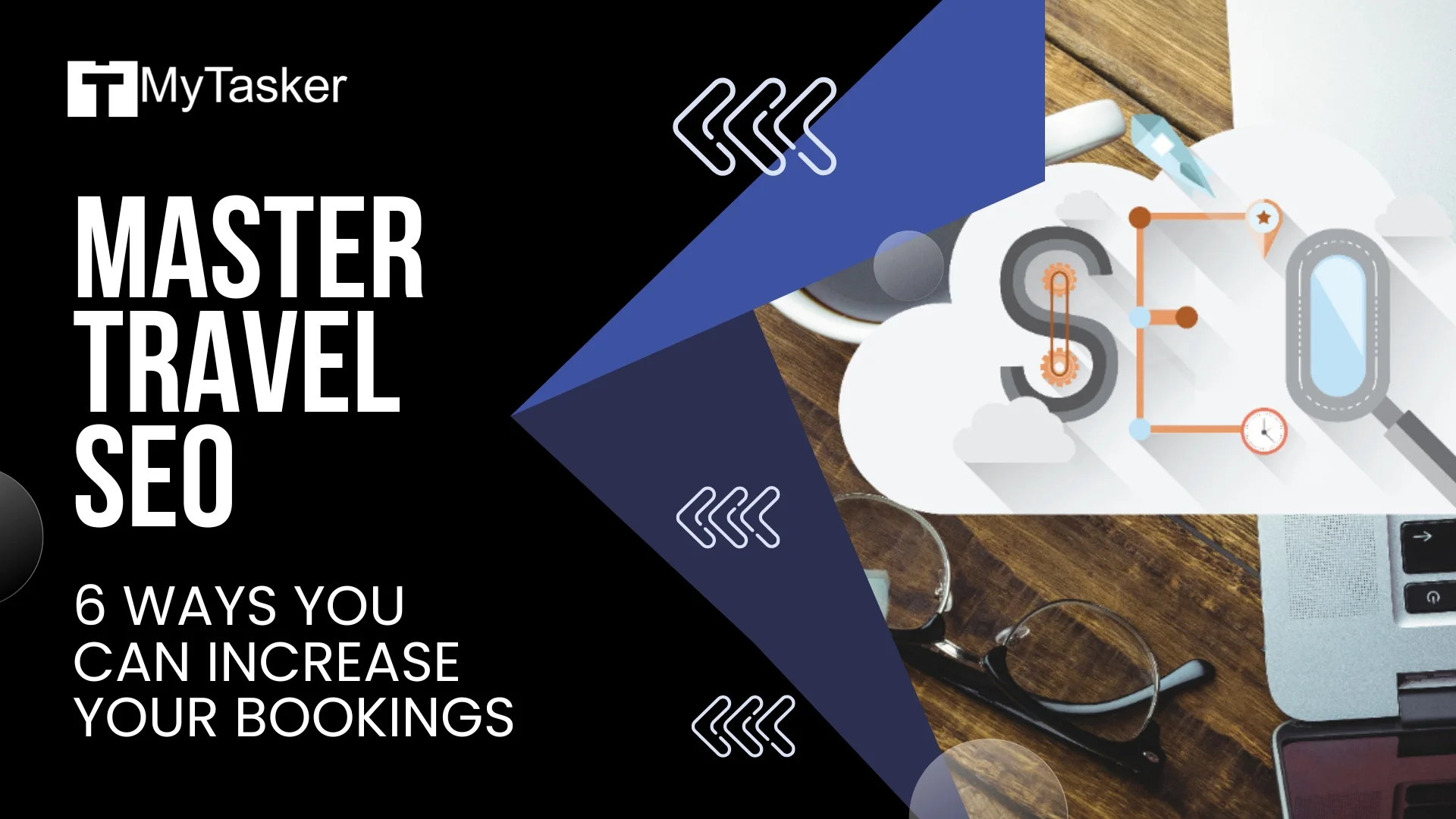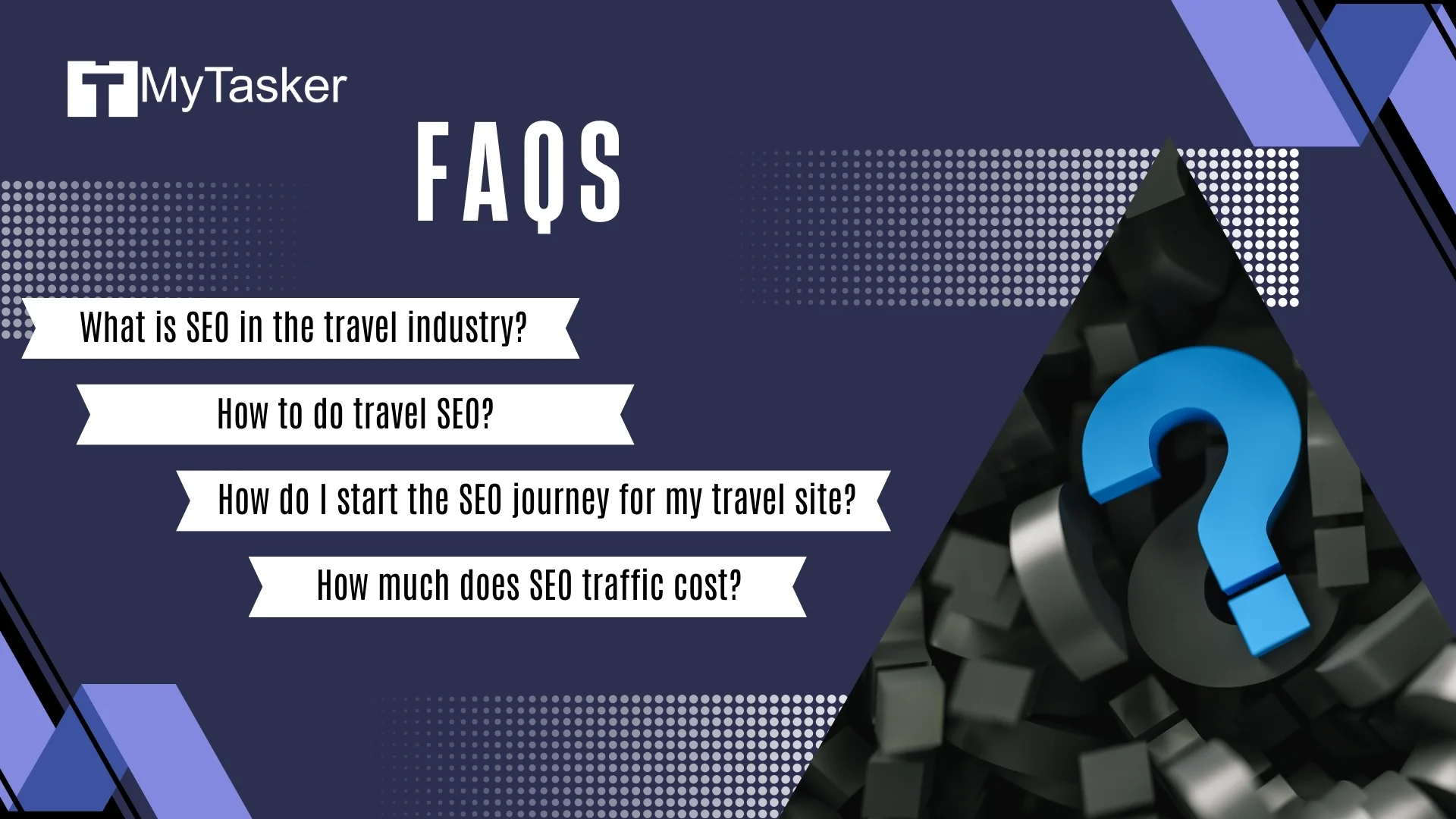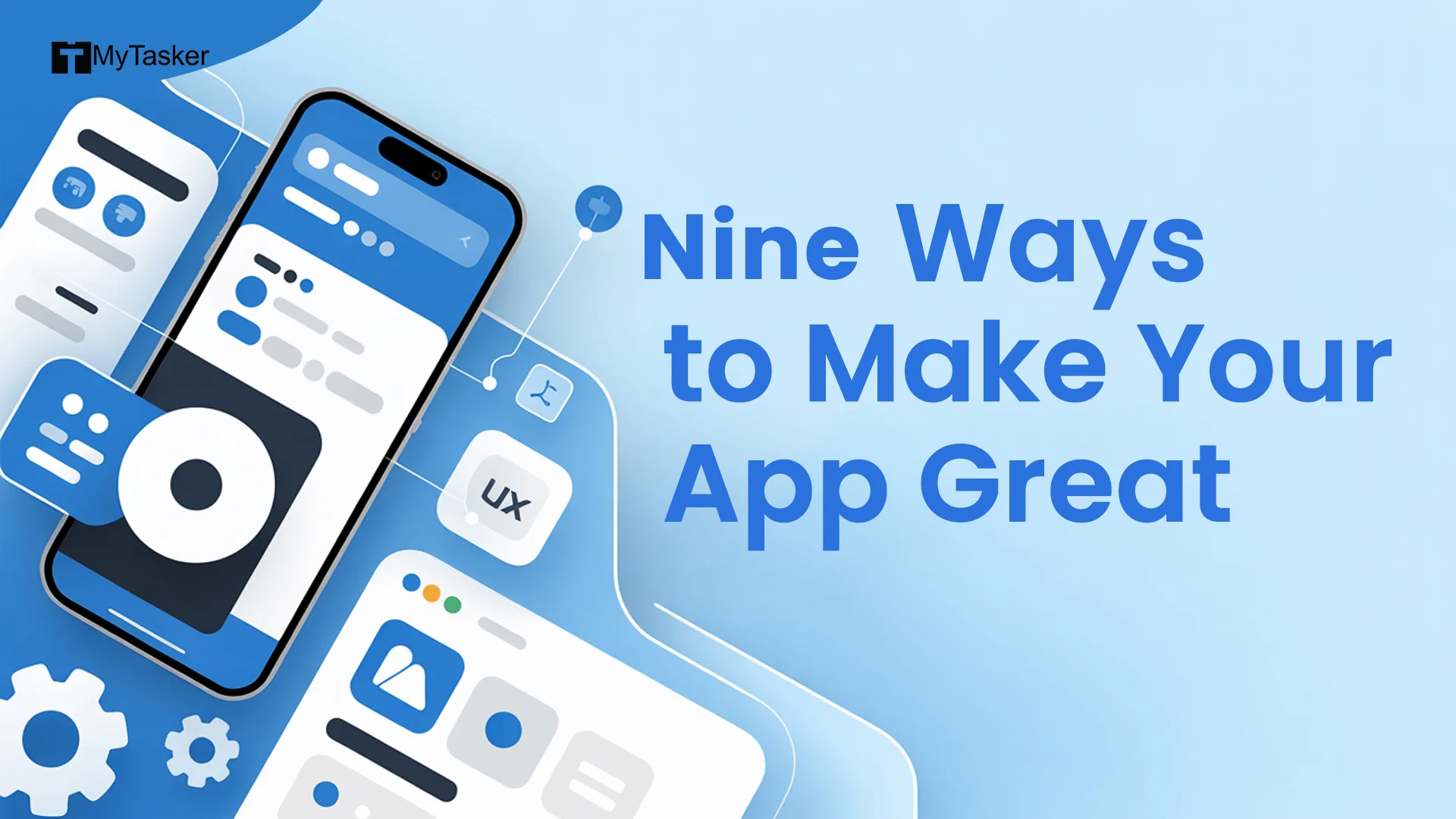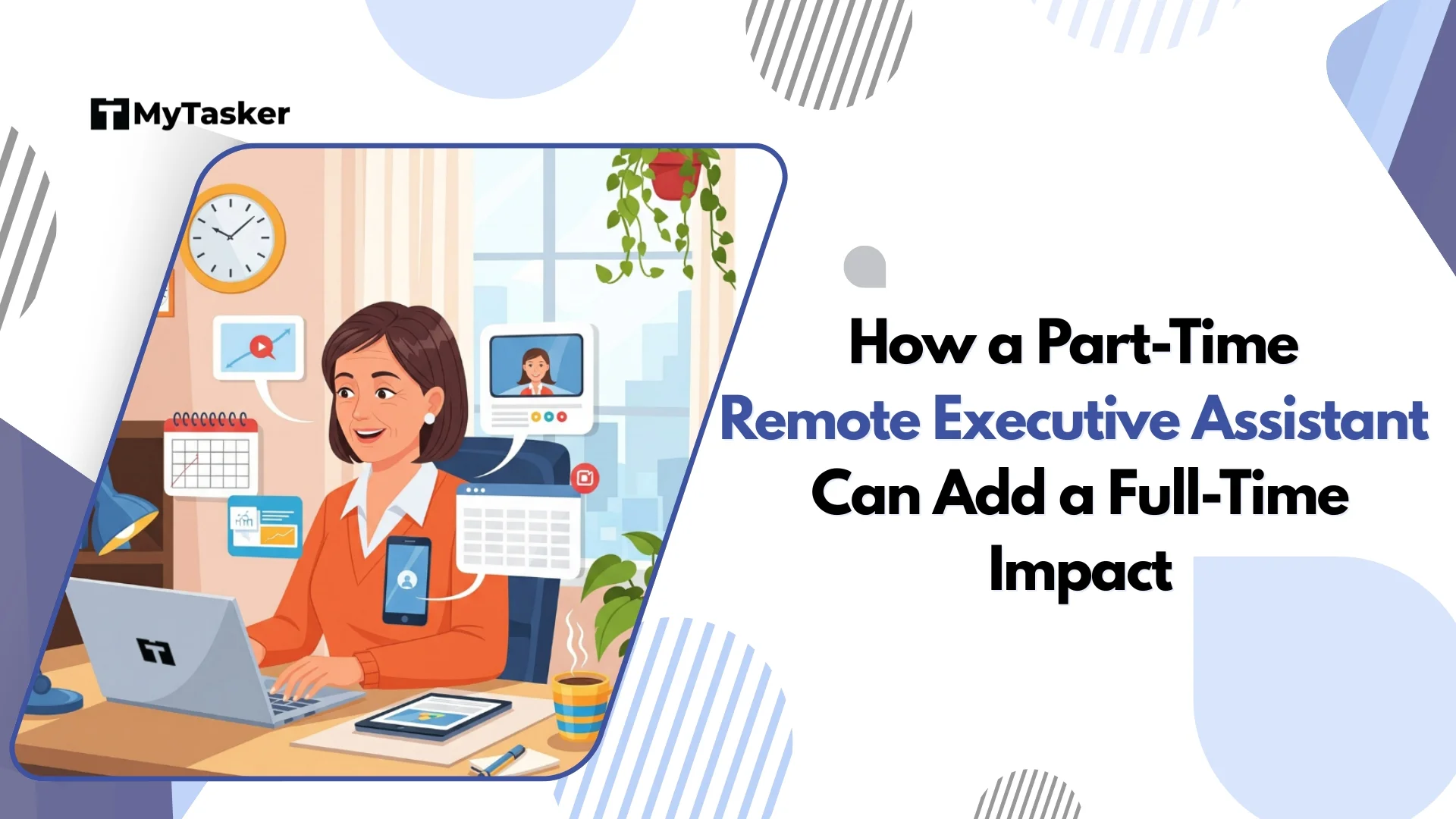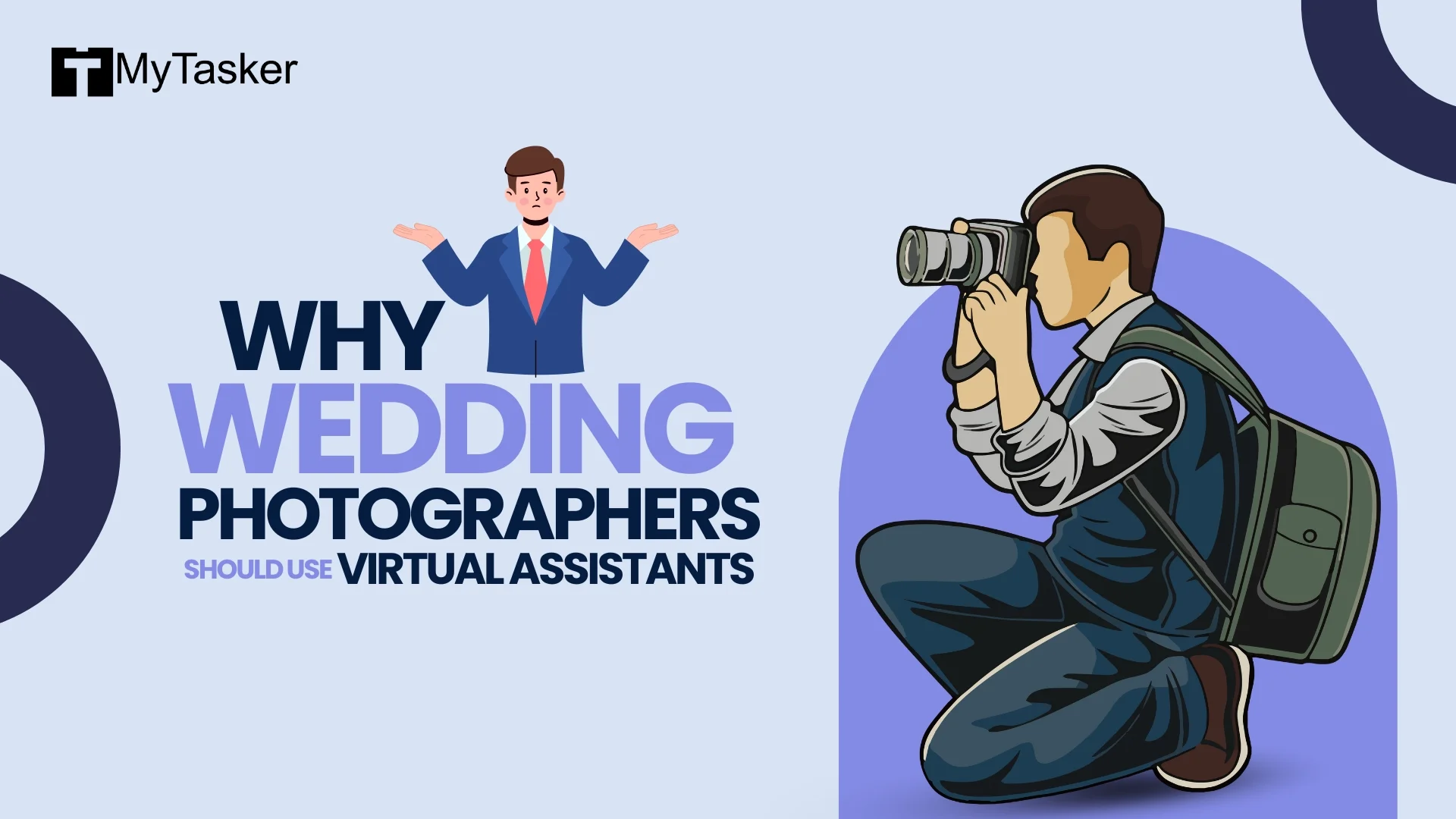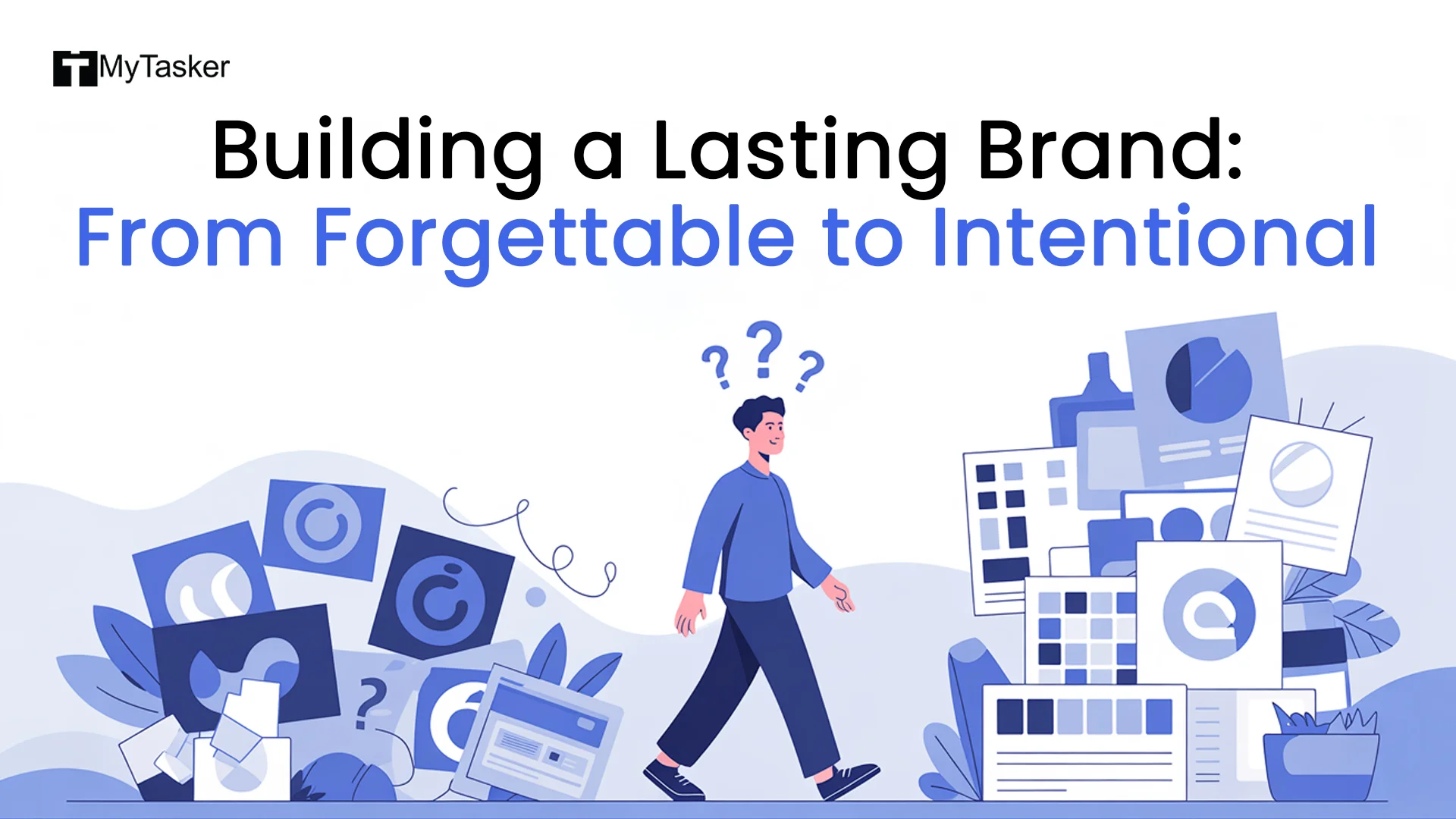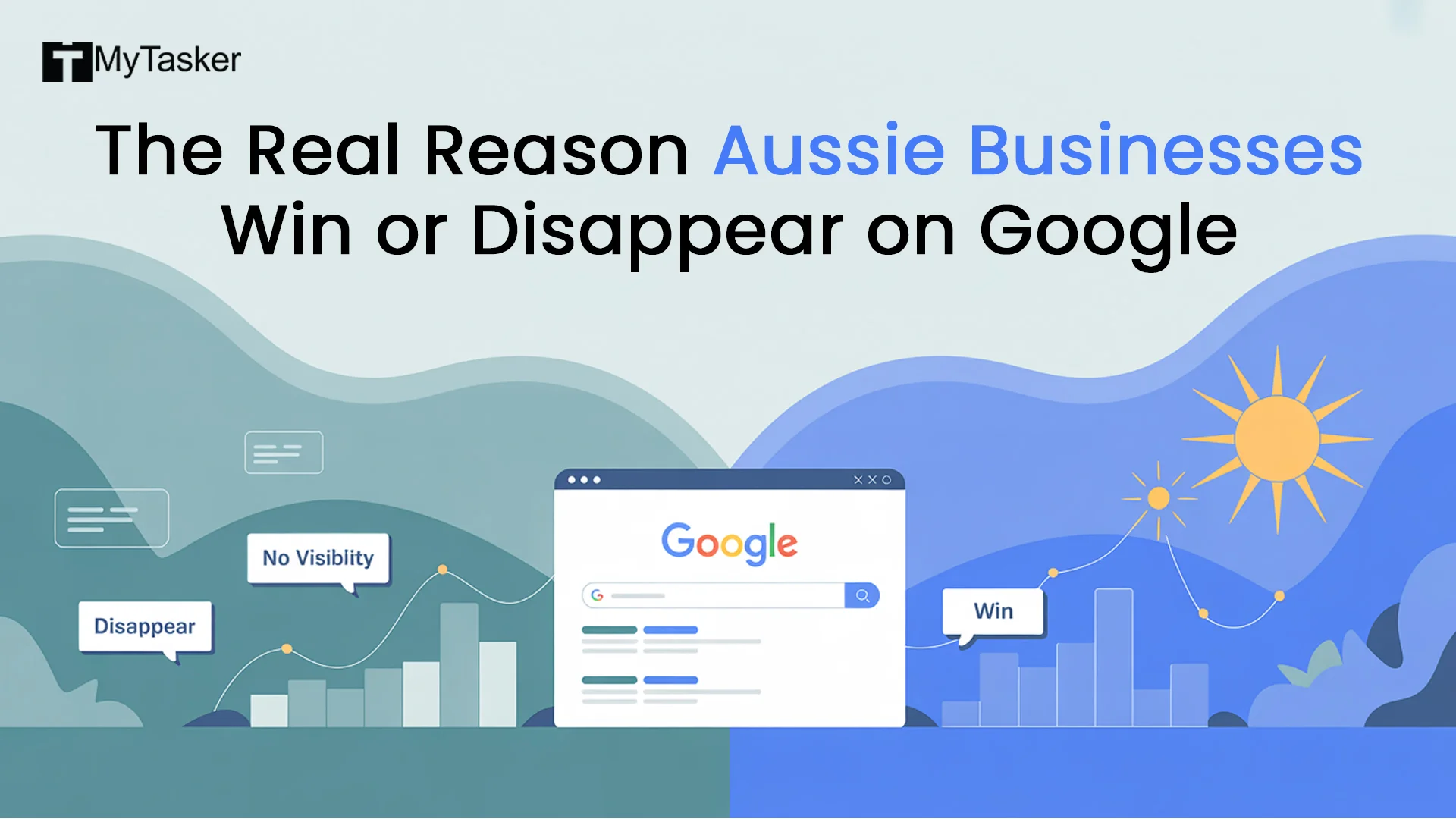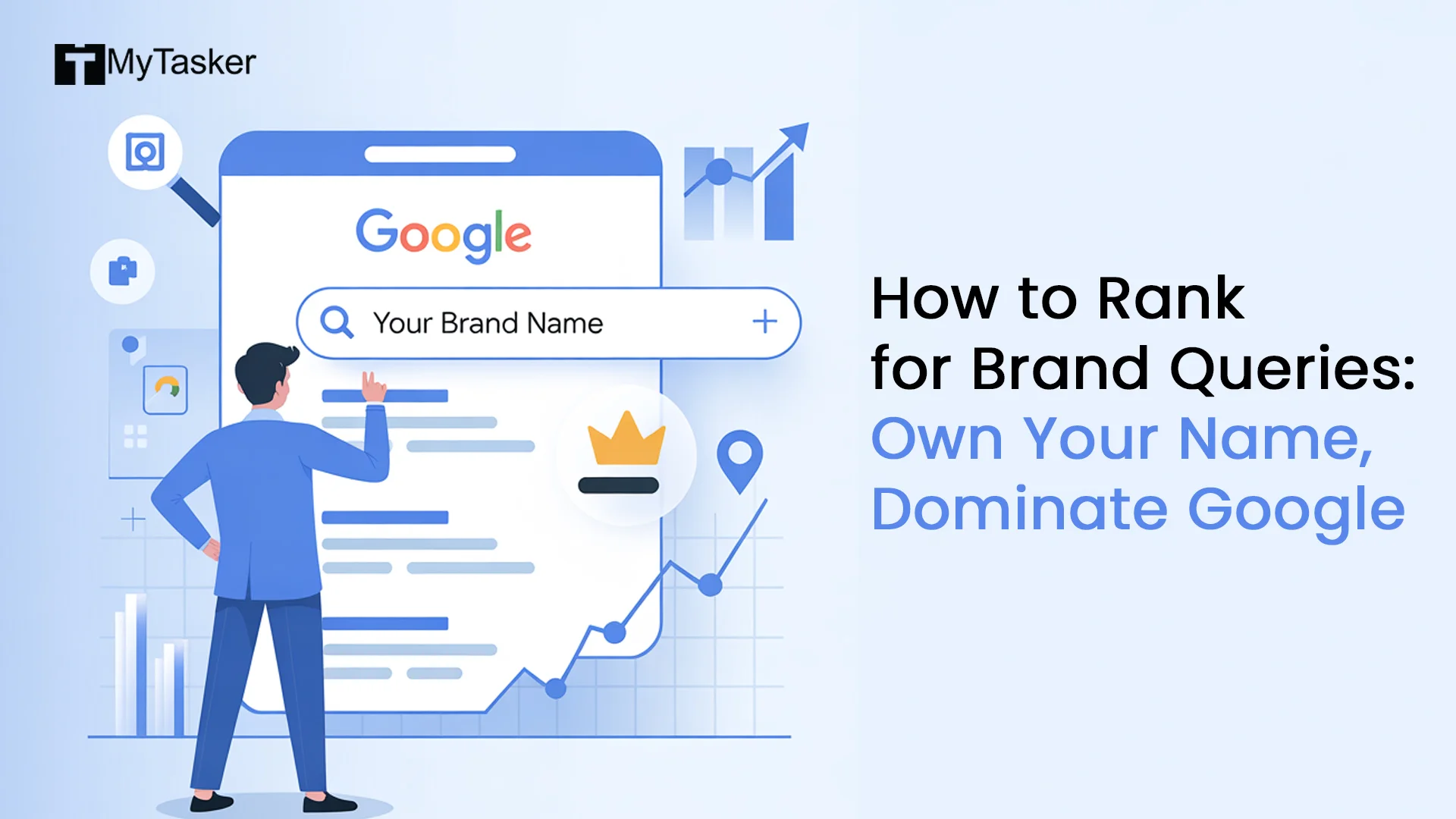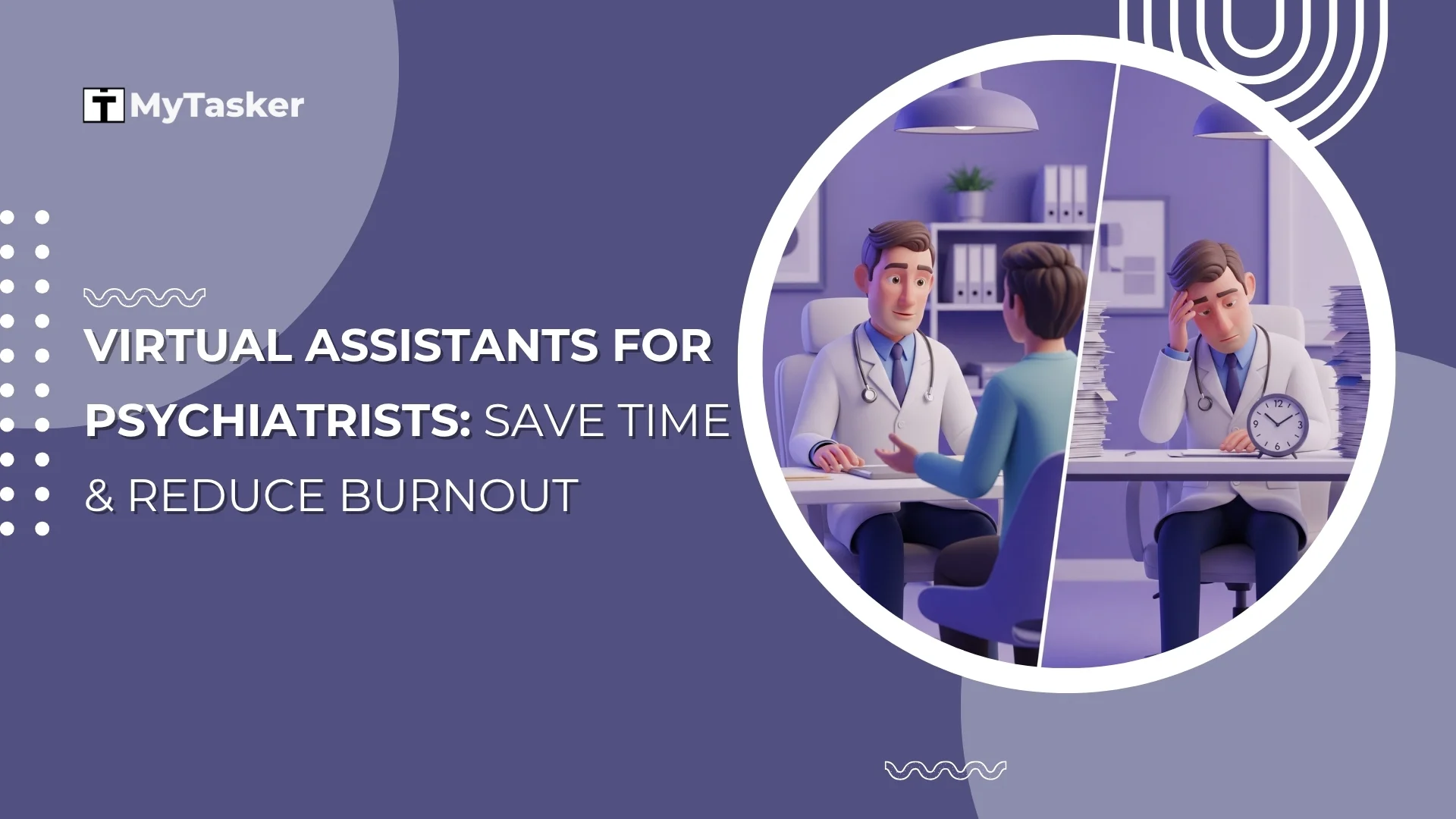Planning a trip is super easy today. From YouTube to Instagram, there's no shortage of inspiration. Still, people trust the Google search alone to find the right information. The credit goes to travel SEO. And there's more than one reason why.
According to the 2024 industry stats on organic visibility, the travel industry ranks 5th. But don't take things and search visibility for granted just yet. Not every online travel agency has a budget, such as Expedia or Kayak. So, spending widely on TVCs and online marketing ads can be tricky.
However, smaller players who have carved a niche will always have an edge. Investing in travel SEO is a surefire way to keep things profitable without breaking the bank. Here, the approach is the key. For instance, a travel SEO strategy for a local walking tour will be markedly different from a hotel search platform. Sure, the core SEO tactics remain the same (yes, the road to the top is a lot less biased). But, there are multiple travel SEO strategies to explore.
This article takes you through the spaces, exploring the roadblocks of travel SEO and travel SEO strategies to increase your bookings.
How does SEO apply to the travel industry?
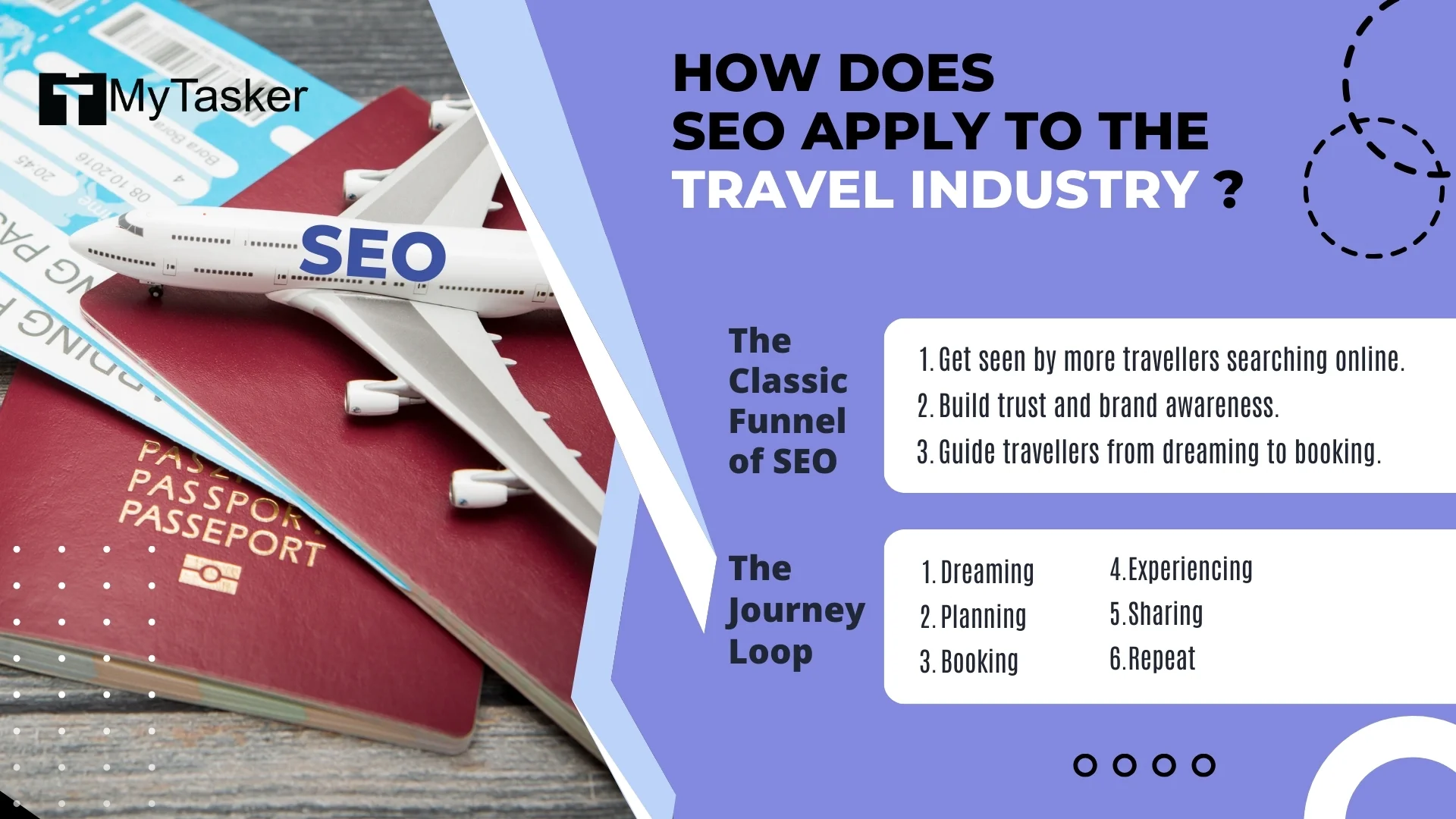
Travel SEO helps aid promotion, adds value and boosts brand visibility. But don't forget every customer's journey is different, and so is the road to conversion. And these different touchpoints are where travel SEO works to nurture leads and boost conversions. Here are two key models that you need to consider. Let's take a closer look.
The Leisure Travel Buying Cycle
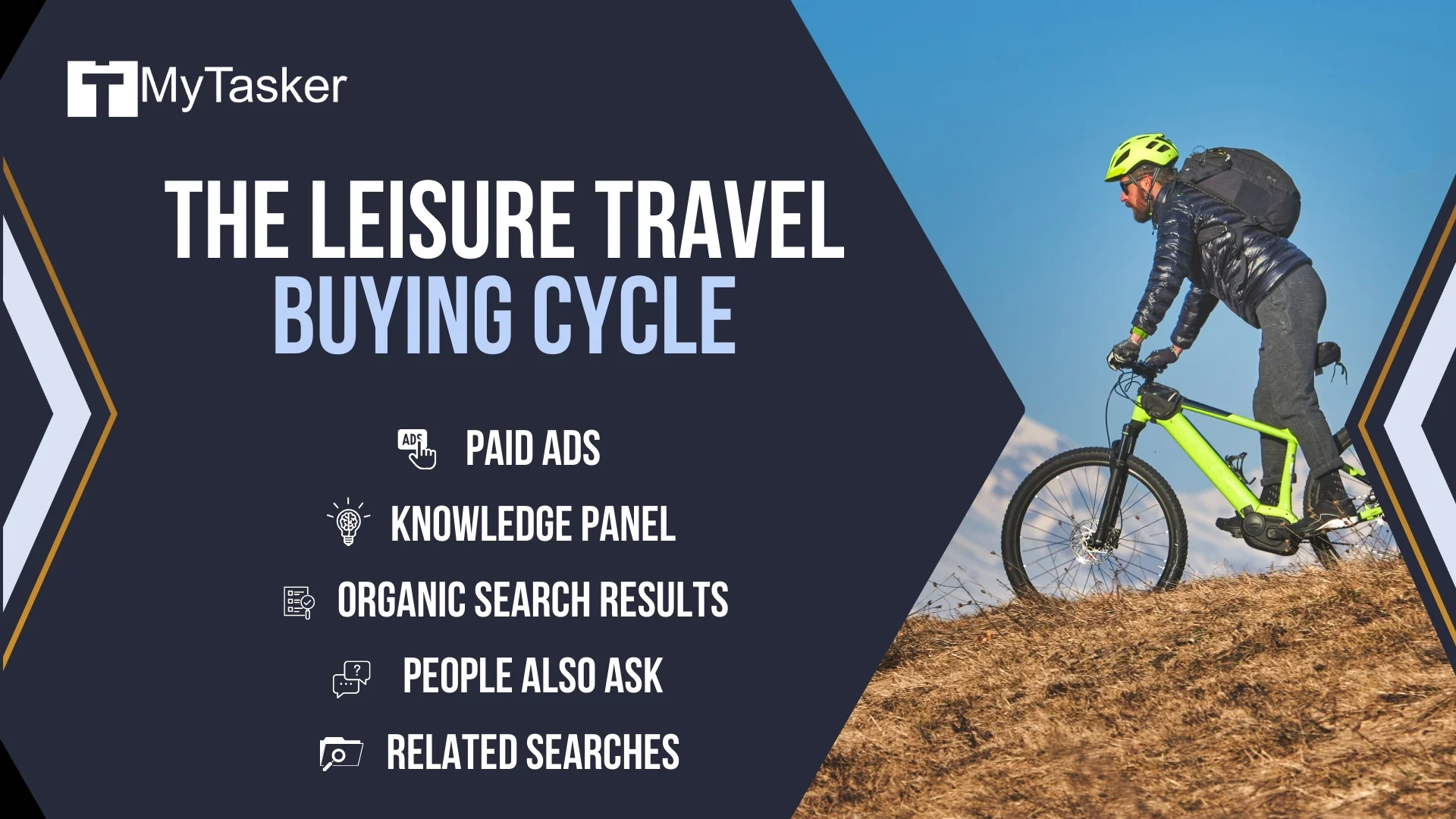
Undeniably, the leisure travel buying cycle has been a game-changer in the travel industry. What it means for tour operators is that consumers are no longer interested in content with a couple of feature photographs or a handwritten package deal about a particular location.
Instead, they are in a DIY mode with the means and desire to research a location and figure out the nitty-gritty details. This translates to a longer journey across the conversion funnel. Take a search query like "Holiday in Paris' for instance. When users run a search for this keyword, the things that appear on the first page of Google include:
-
Paid Ads
-
Knowledge panel, including general information, images, reviews, weather info, and FAQs.
-
Organic search results along with image extensions
-
People Also Ask, and other
-
Related searches
Google purposely maintains this particular order of appearance to ensure users always find the best and most relevant information. However, this is also the page that gives a travel company the necessary data to plan its SEO content marketing strategy.
Among other options, People Also Ask, in particular, is a goldmine for understanding what a consumer wants. Suppose you plan your Travel SEO content to address these questions. In that case, it will directly tick the boxes to satisfy users' search intent, which is always a win!
Micro-Moments
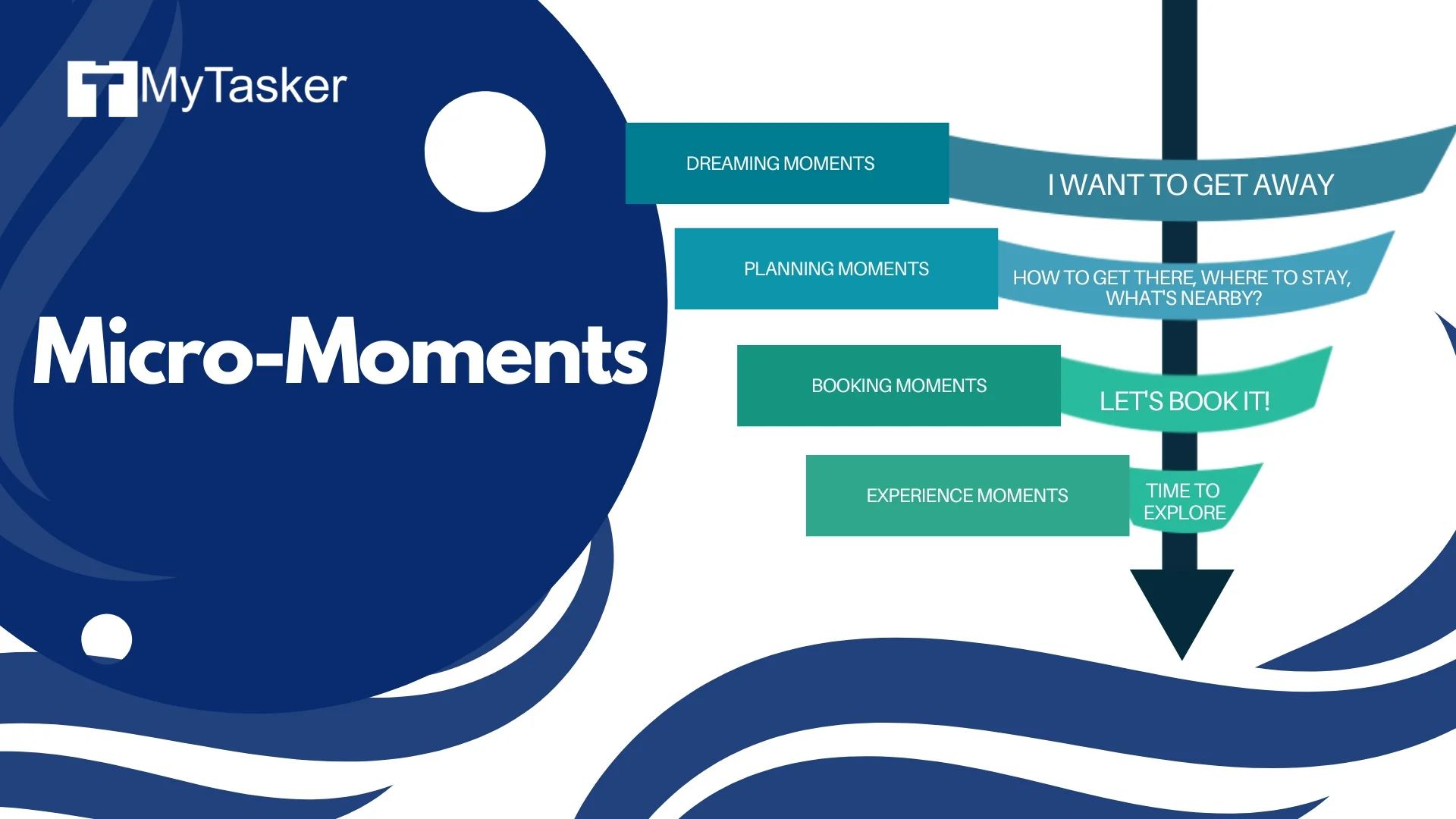
Another model that is relevant to plan your SEO strategy is what Google defines as the "Micro-moments" model. It directly impacts a user's decision-making process as they run queries across search engines to find answers to a question or buy a product or service. These micro-moments are important because they refer to those little intervals during which a consumer can change their mind about the final purchase.
The image below shows the sales funnel in action where micro-moments (there are different sub-parts, too) control a customer's final decision.
As a travel brand, you should focus on the individual stages of a sales funnel. Here’s a breakdown of a micro-moment model into subparts for better understanding.
-
Dreaming moment : This is essentially the start of a buyer’s journey where a buyer is spending most time exploring destinations. That means they are still in the research and discovery phase. They know what they want, but they are confused as to why they want it. So, to tap such customers at this stage, your travel SEO strategy should be built around targeting long-tail keywords, like “best winter holidays,” “ best summer destination,” or “best countries to visit during autumn.”
-
Planning moment : This is officially the what/how/where stage when the customer has already narrowed down a few options. They are now looking at other significant details like custom reviews and flight prices. Here, your content marketing team should be focused on lead nurturing using local SEO and optimizing the content for related keywords, like "best place to eat in Paris," "What to do in Best places to eat around the Louvre," or "what to do in Cathedral Notre Dame."
-
Booking moment: At this stage, the buyer has already found their dream destination, is satisfied with their research, and is ready to make a booking. In short, you‘ve successfully converted the lead.
-
Experience moment: Now that you have a conversion, does that mean you stop applying your SEO tactics? Certainly not! There’s no end game in SEO. In fact, once your lead has been converted, you should continue to optimize your content around the most visited places in the town, like eateries and local tourist attractions, to stay connected.
The Roadblocks of Travel SEO in 2024
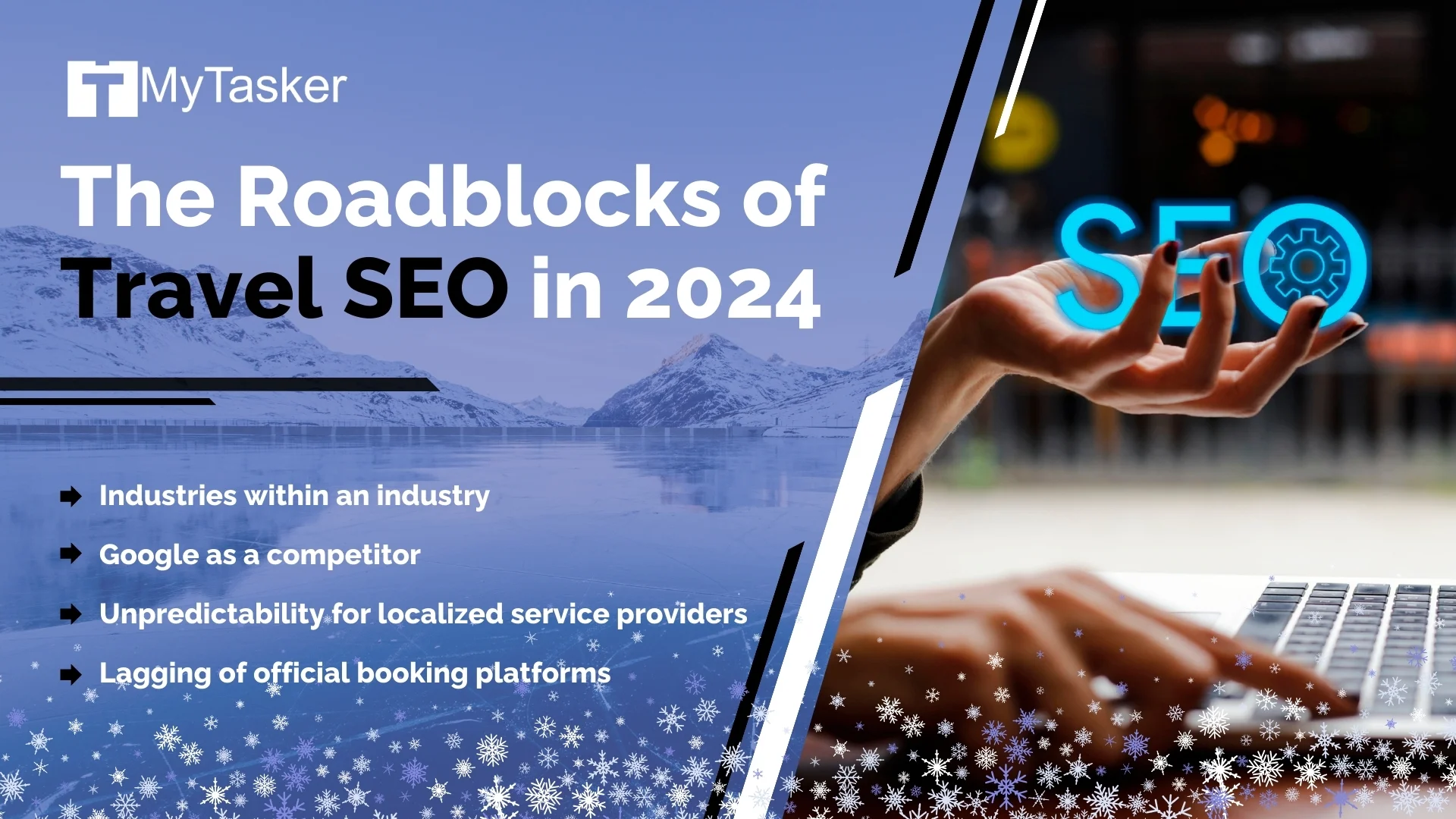
Travel or not, the basics of SEO follow the same old formula. Create high-quality content, address the intent of your target audience, win backlinks, and fix your web pages. However, some specific roadblocks will challenge travel SEO in 2024. Here's a closer look.
-
Industries within an industry: One of the biggest problems of the travel industry is that it comprises multiple mini industries. The list is pretty exhaustive- hotels, airlines, tour operators, comparison sites, car rentals, travel blogging insurance, and more.
-
Your competitor is Google (Does it get any worse?) : Every OTA out there can't help but compete with the big daddy. Yes! Google has its own travel products in place, which heavily impact search engine results. Run a query like "things to do in Paris," and you'll instantly have answers that are optimized for all possible travel-related keywords. To add fuel to the fire, market leaders like Booking and Tripdvisor continue to dominate all popular keywords.
-
Unpredictability for localized service providers : Many profitable, small travel companies are focused on serving one particular area. But some hotspots only witness seasonal visits. Also, certain world events, like a pandemic, crime, or natural disaster, can negatively impact the number of bookings.
-
The official booking platforms are lagging behind : Travelers are less likely to book using a travel agency's official website. Instead, they spend more time on Skyscanner.com, where they can find the best deals on hotels and airlines.
6 Travel SEO Tactics To Increase Your Bookings
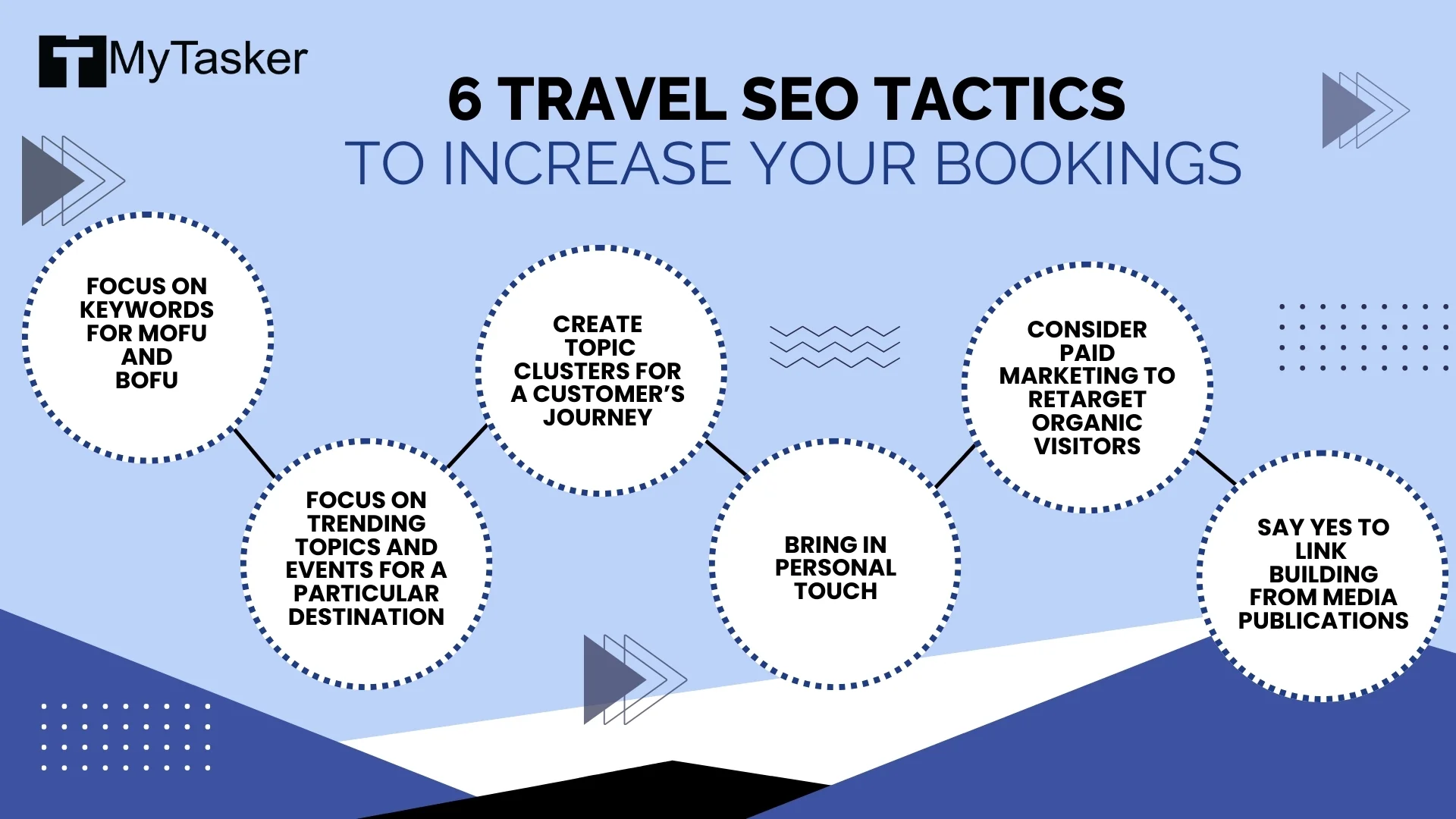
So, you see, travel SEO is a lot more complicated than you can imagine. But fret not! There are ways you can get around these issues and make the most of your efforts. Here are five tried and tested SEO strategies to get you started.
1. Focus on keywords for MOFU and BOFU
Google and big brands closely monitor all popular travel-related keywords to dominate search results. To make matters worse, Google’s new AI-influence searches are making it difficult for travel websites to optimize content for popular keywords.
So, the safest call here is to create content for MOFU and BOFU targeting popular keywords. Let us understand this with an example. Instead of focusing on TOFU queries like “Paris tour” or “things to do in Paris,” a Paris-based travel company should be targeting keywords like “ Eiffel tower tour” or “Louvre museum tour.”
Now, you will notice that the search volume for these keywords won't be that high. But it justifies the intent, and that's what matters more to Google. If you would like to run a math on how these keywords benefit your commercially, you can always go into deeper analysis using the formula below:
(Monthly Search Volume) x (Click-through Rate) x (Website Conversion Rate) x (Average Gross Margin)
2. Focus on trending topics and events for a particular destination
If you're an Indian travel company and more so in the City of Joy, Kolkata, this is perhaps the best time to cash in on "Bryan Adams." Yes! That's right! At the time of writing this post, the legendary rock singer is scheduled to perform in Kolkata. A trending event like "Bryan Adams Tour" should be your bull's eye as a travel company in Kolkata.
But the question is, how do you keep a tab on trending topics and events? There are two ways. One, you can closely monitor the news, and second, you can use Google Trends. But as a business owner, it could be a bit tricky to find time for all that. To make life easy, you can always hire a virtual assistant in India.
At MyTasker, we have dedicated virtual assistants who are well-versed in content marketing and are trained in handling the latest tools and tech. Currently, we are running a special winter offer called “Gift the Power of Time “ that allows your friends and family dedicated hours to hire a VA for a range of premium services. Click here to gift the power of time now!
3. Create topic clusters for a customer’s journey
Topic clusters are cleverly interlinked connections of content on the same topic. For the travel industry especially, topic clusters play a significant role across different stages of a traveller's journey. To create a topic cluster as a part of your SEO strategy, you need to imagine yourself in the traveller’s shoes.
Start by asking questions like” What should I know about the location before planning the trip?, or “Does the place suit my style and budget?”. Zero on 8-10 different ideas that revolve around various stages, from having booked a trip already to still wondering where to go for this summer. Essentially, you are creating content around different pillars like:
-
Informational - Creating inspiring content to answer queries like “Where should I go this summer?”
-
Commercial-Engaging your audience with options
-
Transactional- Helping them with bookings to win trust
-
All Intent-Captivating their emotions with tour planning ideas
-
Advocating-Urging them to reflect their opinion about their travel experience through reviews or testimonials
Once done, repeat the content ideas for different clusters. That way, your on-site travel blogs can be a ready reckoner for trip planning. Here’s an example of a topic cluster idea for a traveller headed for London.
-
Why you should visit London
-
When is the best time to visit London
-
Things to do in London in a day
-
Best places to visit in London
-
The best dishes to try in London
-
Where to stay in London
-
Best restaurants in London
-
10 day tour of London
4. Bring in personal touch
There's nothing more personal than travelling. And that's one of the potent reasons offline travel agents are still in business. From beaches to mountains, every traveler's itinerary is different. And that's precisely what Google is catering to across the SERPS.
What matters is that Google is now prioritizing content backed by Experience, Expertise, Authority and Trust, in short, E-E-A-T. Thus, SEO today can achieve significant impact by creating Helpful, Reliable, People-First Content.
But this strategy comes with a few caveats. For instance, you'll need to hire a content writer who has travelled to destinations to add a personal touch. While you can always put out an ad with specific requirements, a good call would be hiring a virtual company for a niche job like content writing.
Virtual assistant companies invest in a pool of talent. Whether it's digital marketing or content writing, they will always have the right man for the job. Considering that many virtual assistants also work as freelancers, they will be able to bring in a world of personal experience as travel nomads.
At MyTasker, we are blessed with seasoned content writers. They are adept in research and can scan through SERPs and AI tools to figure out the info that's already out there. Then, they list out their own experience and combine inputs from real-time contributors to create authentic, reliable blog posts.
5. Consider paid marketing to retarget organic visitors
A good number of travel queries are commercial, which means a simple TOFU query like “ things to do in Paris” can attract sponsored search results. So, even if you rank high with good organic traffic, your target audience may click on a paid result and convert to your competitor. That’s where paid marketing comes in, especially for retargeting campaigns.
Say your audience likes your blog post “10 things to do in London in a day”. So, ideally, you should be retargeting them for other related posts like “ 5 best eateries in London” or “Local sightseeing tours in London.”
6. Say yes to link building from media publications
Backlinks are a significant Google ranking factor across search engines. But for a travel website, link building can be tricky. However, one foolproof way that has worked for many is digital PR. Here are some tips to get started.
-
Use your company data wisely: Leading travel brands often use their booking data for link bait campaigns.
-
Work with third-party data: Don't have access to internal data? Relax! You can still use third-party info to plan your campaigns.
-
Keep a tab on what's trending: For a travel website to earn backlinks, it is necessary to understand what the majority of the crowd is interested in. For example, the last pandemic saw a rise in cycling activities, which worked successfully for many brands.
-
Go hyper-local: Local publications are always looking for reporting stories. So, if you have an interesting piece of content, they will be more than happy to accept it. Holding on to our example from above, leading airports and cities known for their love of cycling can be a good story to cover. The PR manager can directly reach out to a popular city newspaper and share their featured story.
-
Explore different perspectives: Digital PR means you're pitching journalists, which demands exploring different angles. You will be surprised how a national publication might be interested in your story, which was initially rejected by a local news house.
Kickstart Your Travel SEO with MyTasker
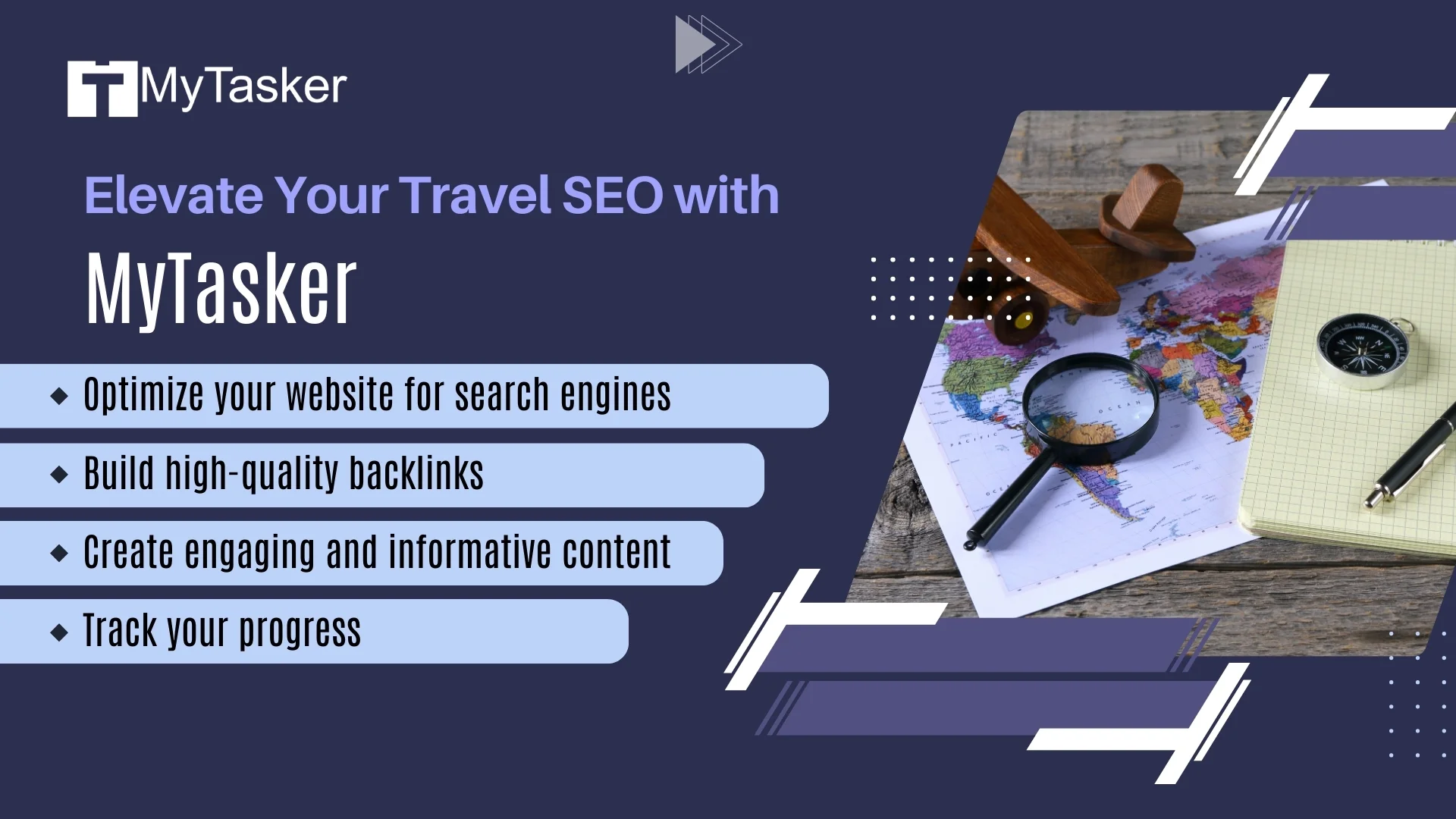
Undeniably, travel is an over-saturated industry, and every day, it's a tough call to keep up with the best players across search engine results pages. However, prioritizing the creation of content backed by real user experience, target keywords, relevant keywords, and topic clusters can be matchwinners.
At MyTasker, we have helped small and medium travel companies bend the curve with functional travel SEO strategies. And we would love to repeat our success and help you get more bookings. With the holiday season kicking in, no time is better than now to power up your travel SEO.
Click here to book a free, no-obligation call.
FAQs:
What is SEO in the travel industry?
Simply put, travel SEO is the way you optimize travel websites to rank higher in search results. This is generally done by using targeted keywords, creating valuable content, and creating a mobile friendly website. SEO attracts travellers looking for info on destinations, tours, and accommodations. In doing so, it drives organic traffic and boosts search engine ranking. In other words, you win more bookings and generate more revenue for your business.
How to do travel SEO?
Start by researching niche keywords like "best travel deals" or "adventure tours." Next, optimize meta tags, improve website speed, and, above all, create high-quality travel content. When you start getting traction, try acquiring backlinks from reputed travel sites. That way, you will be able to leverage local SEO for specific destinations. Also, regularly do keyword research and update content to stay relevant across search results.
How do I start the SEO journey for my travel site?
If you have a travel website, starting your SEO journey doesn't have to be difficult. You can get started by researching target keywords. Next, Develop a user-friendly travel website with engaging, optimized content. Focus on building backlinks and improving site speed. Use tools like Google Analytics to track performance, adjust strategies, and keep learning about new trends in travel SEO.
How much does SEO traffic cost?
SEO traffic is technically free but requires investment in quality content, keyword research tools, and optimization efforts. Unlike paid ads, SEO builds sustainable traffic over time. Costs depend on hiring professionals or managing in-house and range from a few hundred to several thousand dollars monthly, depending on your goals and competition.




